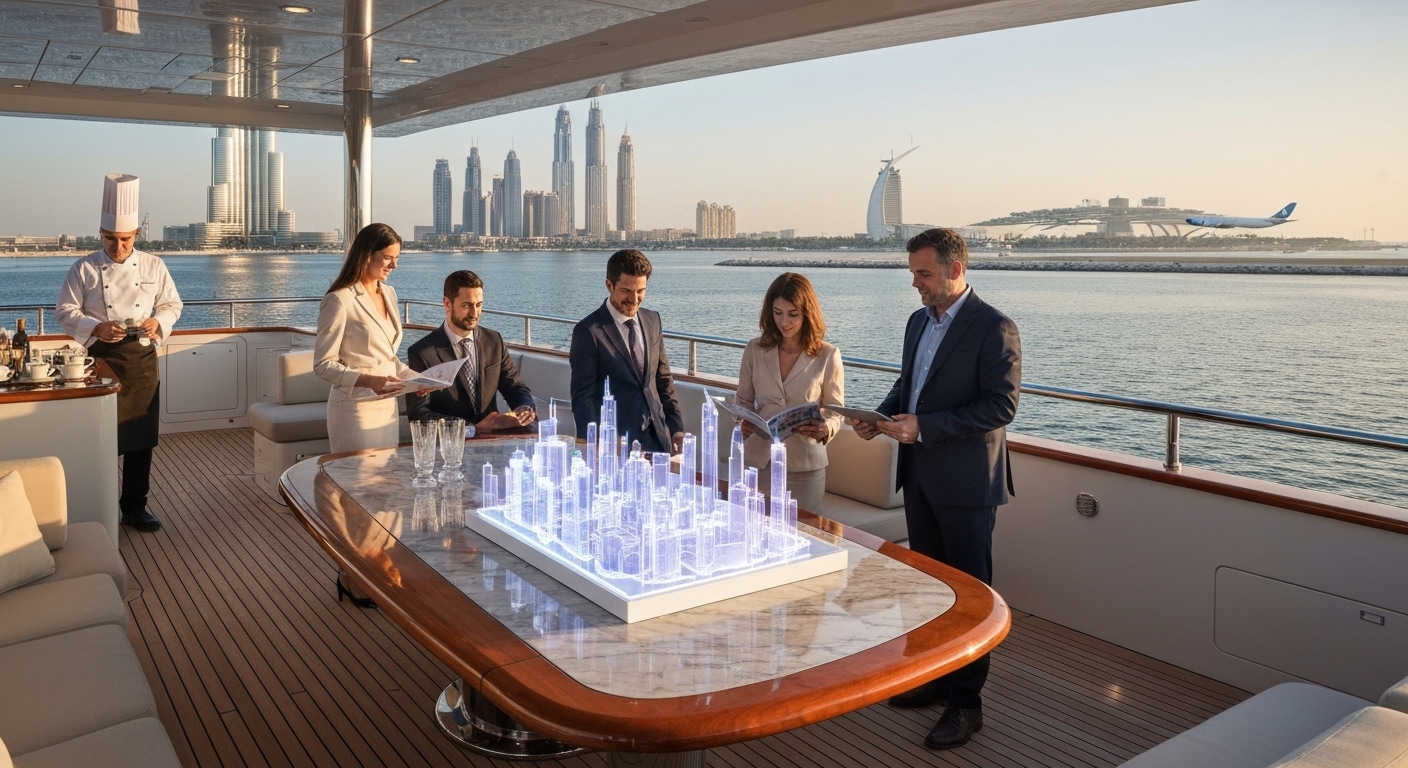Understanding the HNI Investment Landscape: What Drives Capital Allocation?
High-net-worth individuals seeking global property investments are increasingly discerning about yield potential, regulatory stability, and long-term capital appreciation. While traditional investment hubs like London, New York City, and Singapore have dominated portfolios for decades, a fundamental shift is reshaping the global real estate landscape. Today’s sophisticated investors demand superior returns combined with transparent governance—a combination that has positioned Dubai as the emerging epicenter for HNI capital allocation.
Dubai’s Competitive Edge: Unpacking Superior ROI and Capital Appreciation
Dubai’s real estate market delivers compelling financial metrics that consistently outperform established global markets. Current rental yields range from 6-10%, with prime areas achieving even higher returns. Studios in high-performing locations like Al Furjan generate yields up to 8.51%, while Jumeirah Village Circle offers studios yielding 7.87%. These figures dwarf comparable yields in traditional markets.
Capital appreciation trends further strengthen Dubai’s investment case. Freehold villas currently trade 66% above their 2014 market peak and 175% higher than post-pandemic levels. Recent data shows villas registering 29.3% year-on-year growth, while apartments demonstrate 20% annual appreciation. Properties remain undervalued by two to three times relative to major cities like London and New York, creating substantial upside potential for astute investors.
A Tale of Three Cities: Deeper Dive into London, NYC, and Singapore’s Real Estate Challenges
London’s property market faces significant headwinds that limit HNI appeal. Average gross rental yields hover around 3%, while regulatory uncertainty and increased taxation on foreign ownership create additional friction. Post-Brexit market volatility has further dampened investor confidence, particularly among international wealth managers.
New York’s real estate landscape presents similar challenges, with rental yields ranging from 2.5% to 4%. High carrying costs, complex regulatory frameworks, and substantial transaction fees erode net returns. Recent policy changes affecting foreign investment have added layers of complexity that many HNIs prefer to avoid.
Singapore, while maintaining stability, offers limited growth potential with yields comparable to London. Strict cooling measures and additional buyer’s stamp duties for foreign investors significantly impact overall returns, making it less attractive for yield-focused strategies.
Beyond Numbers: The Strategic Advantages of Dubai for HNIs
Dubai’s appeal extends beyond raw financial metrics to encompass strategic advantages crucial for HNI investment decisions. The emirate’s highly regulated market, governed by the strict Real Estate Regulation Authority, ensures transparency and investor protection. This compliance-oriented framework provides the governance standards that sophisticated investors demand.
Market maturity offers impressive diversity, from ultra-luxury branded residences in Downtown Dubai to smart, affordable luxury options in emerging neighborhoods. This range enables portfolio diversification while maintaining strong ROI potential across segments—a flexibility unavailable in more restrictive markets.
Key Factors Attracting HNI Capital to Dubai’s Property Market
Several catalysts are driving HNI migration to Dubai’s property market. Favorable government policies and liberalized visa rules have eliminated traditional barriers to foreign ownership. The proximity to key markets, particularly for Asian and Middle Eastern wealth, reduces operational complexity.
Dubai’s status as a global safe haven attracts capital seeking stability during uncertain times. The emirate’s business-friendly environment, combined with tax advantages, creates compelling total returns when factoring in the broader wealth management ecosystem.
Navigating Your Investment: Why Danube Properties Stands Out
Danube Properties exemplifies the market-responsive development approach that attracts HNI investors. Their innovative payment plans unlock market access while maintaining quality standards that support long-term appreciation. Projects like Elitz 2 at Jumeirah Village Circle demonstrate how strategic development partnerships can maximize investment potential.
The company’s delivery record and market positioning support Dubai’s larger narrative as a trusted investment hub for high-net-worth individuals seeking both yield and capital growth.
The Future of Global Wealth: Dubai as the New Investment Epicenter
As global wealth patterns evolve, Dubai’s fundamentals position it as the preferred destination for sophisticated property investment. Superior yields, robust capital appreciation, transparent governance, and strategic location advantages create a compelling value proposition that traditional markets struggle to match.
For HNIs seeking to optimize their real estate portfolios, Dubai represents not just an alternative investment destination but the new standard for global property returns. The confluence of financial performance, regulatory stability, and strategic advantages makes Dubai the logical choice for discerning investors looking beyond conventional markets.




